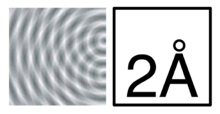True, not Right (Part 2)
/(Though I'm far more on Dean Starkman's side, I'll give in to Jeff Jarvis' trope of "iterative journalism" here. That'll teach me to dash something off in the WordPress interface, rather than using a text editor and forcing myself to revise between the cut and the paste.) In a recent interview with On the Media, Kathleen Hall Jamieson, the director of Factcheck.org and Flackcheck.org, also gets a bit into the conceptualizing of the political TV ads that I bemoaned, though obliquely. And one of her quantitative claims might make me back away from my thoughts that the current state of ads is not just poor, but anti-democratic.
The focus of Jamieson's segment is on how watching the debates is good for you, in that the questioning could knock candidates loose from their proscribed talking points (of course, the first precept of being a politician is answering the questions you want to answer, not the one you're given, but the "batter up" of this is one of the reasons we watch). This is in opposition to the controlled and carefully staged medium of an ad. She also takes the example of the whole chorus line of Republican candidates responding to the hypothetical of a 10x spending cut/tax increase, or to "Obamacare"; of that mass mindset, she says, "you can't learn all of that in advertising".
But when Brooke asks whether she sees any value in political ads, Jamieson lets drop that "advertising, in general, contains accurate, not inaccurate statements." When Brooke -- and, I'm guessing, the rest of us -- expresses surprise, Jamieson replies, "That's historically true. And I tell you that having spent more hours than I'd care to count analyzing claim by claim in the ads." Of course, that doesn't mean there aren't serious deceptions, she adds. (I have to award her points for her "and that's why we need a lot of good journalism wrapped around this political process" plug. Full employment for journalists!)
As I wrote in the previous post, the major theories on voter choice in modern political science research tend to assume that potential voters act based on rational choice. Voters may be motivated to find the candidate or party that is the "nearest neighbor" on positions, or which candidate will "balance" the government, or who culturally is closest. These theories are not empirically well tested, and are vulnerable the same way economic theories based on the "rational actor" hypothesis are -- but the point is all rely on not only the voter collecting reasonably accurate information about the candidates, but that the voter has high confidence that he or she can collect reasonably accurate information about the candidates.
If these ads can dole out even bits of accurate information, as Jamieson suggests is true in the aggregate, I suppose I can live with their horrible production values, their smarm, their general suicide-inducing aura. If they even provide hooks for as-well-distributed journalistic annotations, they might serve an actual pro-democratic function (again, small-d democratic). But this requires not just institutional resistance to that Romney's staffer's promotion of the medium as "propaganda", and the small degree of righteousness to believe your production of an ad is to help the country, not to help Candidate A win.

